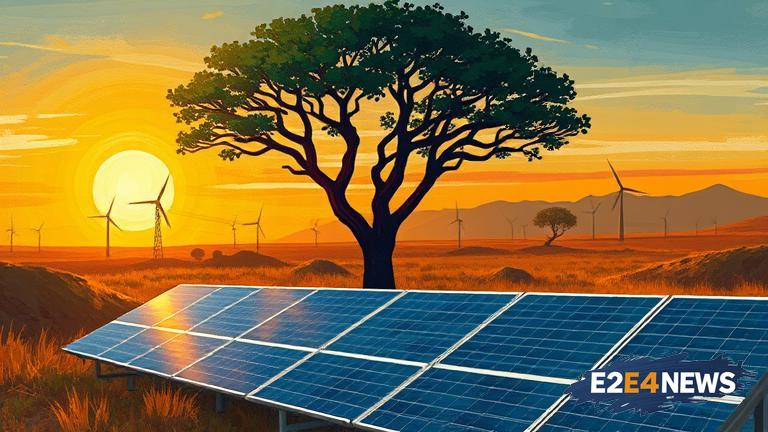The African continent is witnessing a significant shift towards renewable energy, driven by the need to address the pressing issues of energy access, climate change, and sustainable development. With many countries still struggling to provide reliable and affordable electricity to their citizens, renewable energy has emerged as a viable solution. Solar and wind power are leading the charge, with countries like South Africa, Egypt, and Morocco investing heavily in these sectors. The African Union’s ambitious target of achieving 100% access to electricity by 2030 has further accelerated the adoption of renewable energy. Governments and private sector players are working together to develop large-scale renewable energy projects, creating new opportunities for investment and job creation. The use of renewable energy is also expected to reduce greenhouse gas emissions, contributing to global efforts to combat climate change. Moreover, renewable energy can help to reduce dependence on fossil fuels, improving energy security and reducing the impact of price volatility. In addition to solar and wind power, other forms of renewable energy such as hydro, geothermal, and biomass are also being explored. The development of renewable energy infrastructure is also driving innovation, with new technologies and business models emerging to support the growth of the sector. However, despite the progress made, significant challenges remain, including the need for greater investment, better policy frameworks, and improved grid infrastructure. Addressing these challenges will be critical to unlocking the full potential of renewable energy in Africa. The international community is also playing a crucial role in supporting Africa’s renewable energy ambitions, with organizations such as the International Renewable Energy Agency (IRENA) and the African Development Bank (AfDB) providing technical assistance and financing. Furthermore, the private sector is increasingly recognizing the opportunities presented by Africa’s renewable energy market, with companies such as Siemens Gamesa and Vestas investing in the region. As the demand for renewable energy continues to grow, it is likely that Africa will become an increasingly important player in the global renewable energy market. The continent’s abundant natural resources, combined with its growing population and urbanization, make it an attractive location for renewable energy investments. In conclusion, Africa’s renewable energy revolution is gaining momentum, driven by a combination of government support, private sector investment, and international cooperation. As the continent continues to transition towards a low-carbon economy, it is likely that renewable energy will play an increasingly important role in shaping Africa’s energy future. With the right policies and investments in place, Africa can unlock the full potential of renewable energy, driving economic growth, reducing poverty, and promoting sustainable development. The future of renewable energy in Africa looks bright, with the potential to create a more sustainable, equitable, and prosperous continent for all. The growth of renewable energy in Africa is also expected to have a positive impact on the environment, reducing pollution and promoting conservation. Moreover, the development of renewable energy infrastructure can help to promote energy access, particularly in rural areas where access to electricity is often limited. In addition, the creation of new job opportunities in the renewable energy sector can help to reduce unemployment and promote economic growth. Overall, the adoption of renewable energy in Africa has the potential to transform the continent’s energy landscape, promoting sustainable development, reducing poverty, and improving the quality of life for millions of people.
